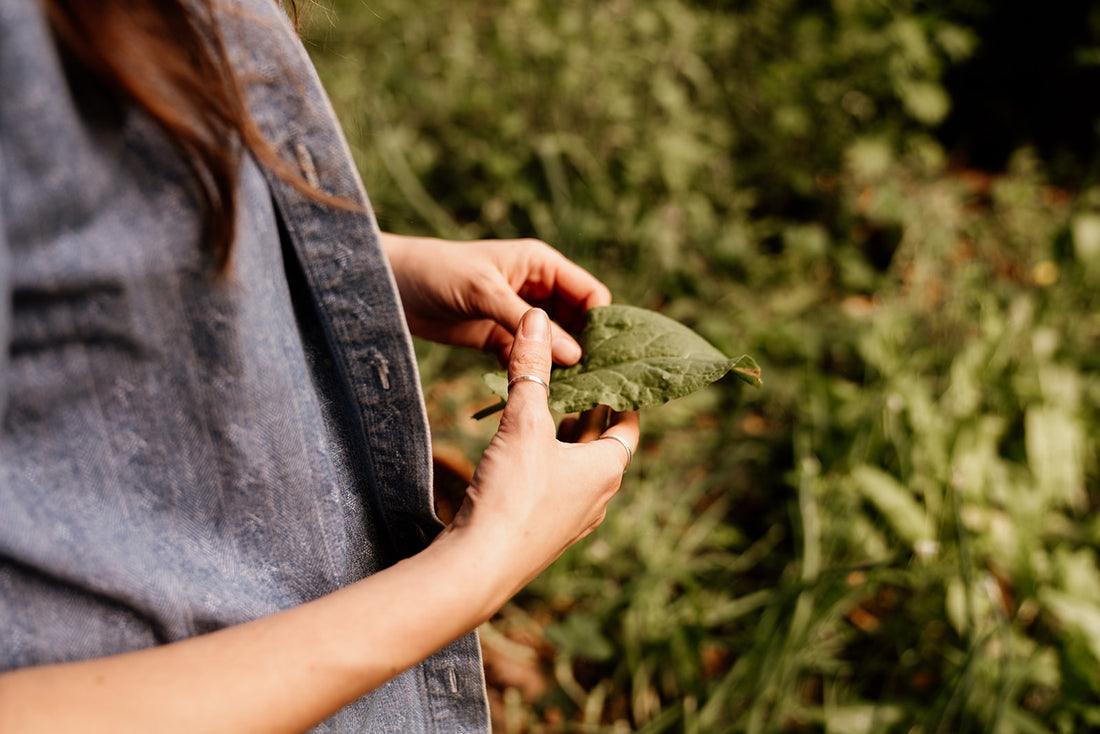I love harvesting medicinal weeds. They're effective and they're everywhere, covering hillsides and threatening to overtake gardens. But not everybody feels comfortable foraging for wild medicinal weeds without a guide. Not everyone has a place to forage, and plenty of people don’t want to. I get that.
Consider, instead, grocery stores. They are full of cheap herbal medicine.
I don't mean supplements or co-op baggies of licorice root. I mean thyme, garlic, horseradish, ginger, onion oregano, honey, cayenne, turmeric, basil, mint, fennel. Foods that (if they're high quality, fresh, and properly prepared) can be extremely potent medicine.
And because they're food they're affordable and can be found easily. You can make an herbal extract for a tiny fraction of the cost of buying it already made.
Many people don't realize that they can even be bought with government issued SNAP benefits, making them extremely accessible to most.
Quality
If you're going to make potent herbal remedies with food I want to stress that quality matters
That means the herbs (whether they’re fresh or dry) have a flavor, a smell, some color (depending on the herb), and they produce a sensation when you consume it. Maybe that’s a tingling on your tongue. That’s true for many kitchen herbs, they’re slightly numbing because they should be high in medicinal volatile oils. or maybe the herb makes your stomach ache ease up.
The absolute cheapest brand of spices won't do much. maybe they'll give you some flavor but not much medicinal effect. It's important that you get something that's good quality because that is what's going to bring you health.
Different ways to make herbal medicine- Eat it straight. When I’m sick I’ll chew on a piece of ginger or garlic. It's not for everyone. But it works
- Use more of the herbs in your everyday food. you can add an excess of something like rosemary ginger or garlic to your food, like five times the amount suggested. A lot of times food tastes way better this way anyway.
- Make a tea. To make a tea you just need a tsp per cup of water. You don't need to buy a huge amount of the herbs for a tea. Just make sure you're following the directions for making a medicinal tea, not a green or black tea beverage.
- Chew seeds. If you have digestive issues and you’re chewing something like fennel, dill or coriander seeds, all you need is a few seeds, unprepared, to make a difference. A jar of coriander or fennel will last you a long time. And the jar is easy to throw into a bag and take around with you.
- Make a strong herbal oil to drizzle over your food or use in your dressings.
- Make a strong herbal apple cider vinegar to again drizzle over food or use in dressings or take shots of or mix with honey to make a drink concentrate.
- Make a strong herbal honey to take as a syrup or drizzle over food.
- Make herbal seasonings. Seasonings are great- these are dried herb blend mixes (which you can do sometimes with salt) to sprinkle over food.
- Paste or pesto. It doesn’t have to be just basil. You can do this with any plant or herb (nettles, dandelion leaves, oregano, sage). (I mention dandelion and nettles because the basic Kroger by my house has dandelion leaves now. And farmers markets often have nettles in spring AND many farmer’s markets accept SNAP benefits and many of them match and double the benefits up to a certain amount. So very worthwhile.
You see a trend here, right? Just make it as delicious and easy as possible to eat healthful and healing herbs every day. This becomes as serious prevention or a boost for when you’re feeling under the weather.
If you want to check out recipes for the remedies I describe above or learn more about kitchen herbalism (this essay summarizes the first video in a four part series!) you can learn so much more through the Wild Origins Patreon.

